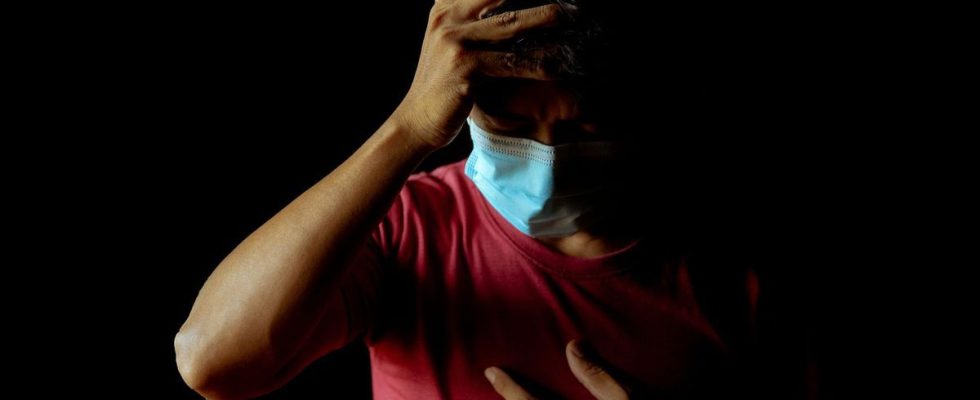Published on
Updated
Reading 3 mins.
This March 15 marks the first long Covid awareness day. Doctissimo chose to interview Professor Eric Caumes, infectious disease specialist and consultant at the Hôtel-Dieu in Paris.
What is the long Covid?
Professor Eric Caumes : You have to differentiate several things, among all the symptoms that can persist after having had Covid. Must be distinguished :
- people with sequelae of the disease: these are people who have had severe Covid, have often gone to intensive care and have sequelae, such as pulmonary fibrosis, which sometimes makes them oxygen-dependent.
- people who take time to recover after this viral infection: they heal spontaneously but it takes time and the symptoms (fatigue, anosmia, ageusia, etc.) last but eventually disappear;
- And finally, patients who complain of a wide variety of symptoms (cardiac, respiratory, neurological, digestive, etc.) after a proven or hypothetical Covid, or sometimes after a vaccination, but in whom the clinical examination and additional examinations show nothing. . These people (and some doctors) believe that they have a long covid. But for my part (and I’m not the only one) I think it’s more of a body distress syndrome.
What are the causes and risk factors leading to developing these types of symptoms?
Professor Eric Caumes : These patients are often women, we observe a ratio of two women for one man. These are young people, who have very little risk of having a serious Covid. When we study their profile, they are often anxious, perfectionist personalities, with a tendency to catastrophism, with a hyper-focus on fluctuating symptoms, which disappear with distraction.
What treatment do you recommend for these patients?
Professor Eric Caumes : Multidisciplinary care is needed. When they arrive at the Hôtel-Dieu, in the Casper course, they are patients who have been in diagnostic and therapeutic wandering for a long time. As a doctor, I take care of the medical part, I examine them, and take stock of all the additional examinations carried out.
Then, the relay is taken over by fellow psychiatrists and sports specialists, for a care more adapted to these functional disorders. The treatment is based on cognitive-behavioural therapies, mindful meditation, the practice of an adapted physical activity, such as Tai Chi Chuan… These are patients who need a lot of listening, empathy and also psycho-sanitary education. According to the first feedback from the Casper study that we are conducting, patients say they are much better after three or six months.
Are there studies to better understand what is called long Covid?
Professor Eric Caumes : There are many studies, unfortunately not focused on body distress syndrome. However, a study carried out by Professor Cedric Lemogne’s team, here at the Hotel-Dieu, has proven that what is called long Covid was associated not with having had Covid but with having thought we had it.
Another study, by the same team, showed that some patients suffered from post-traumatic stress disorder, especially after the 1st wave. These conclusions are consistent. to show that these patients actually need psycho-education, with management of their anxiety or their depressive syndrome when associated.
It is somewhere a health scandal to comfort them in the idea that they have a long Covid. These are patients in diagnostic and therapeutic wandering, who need to be taken care of for the bodily distress syndrome from which they suffer.
But in France this syndrome (also called functional somatic disorders) does not interest many people, as we had already seen with Lyme disease; what I had denounced at the time in my book “Lyme disease. Reality or deception“. It is not taught and the doctors are not trained to recognize it. It therefore encourages all excesses. And it reinforces the patients in their journey of wandering and suffering.
